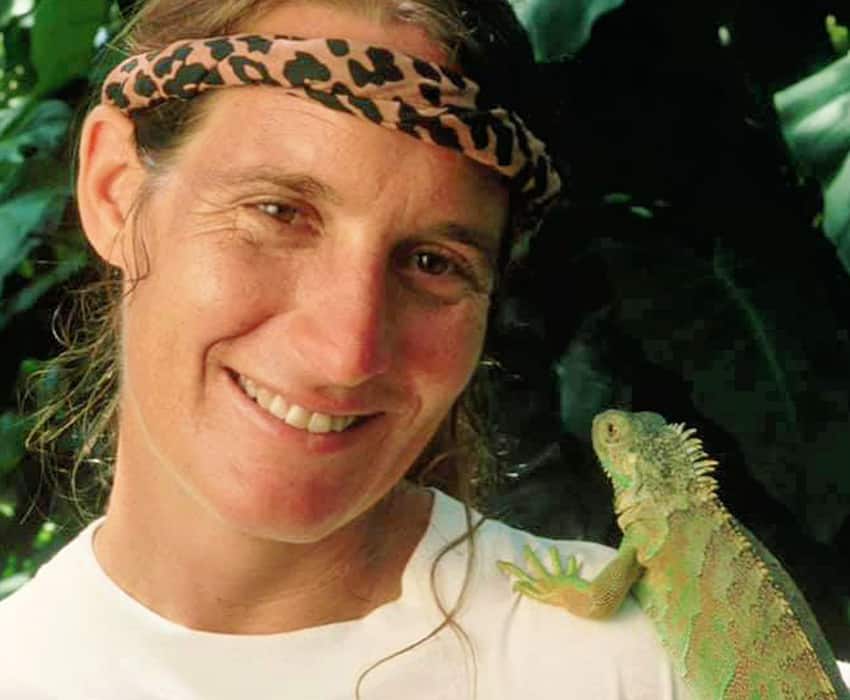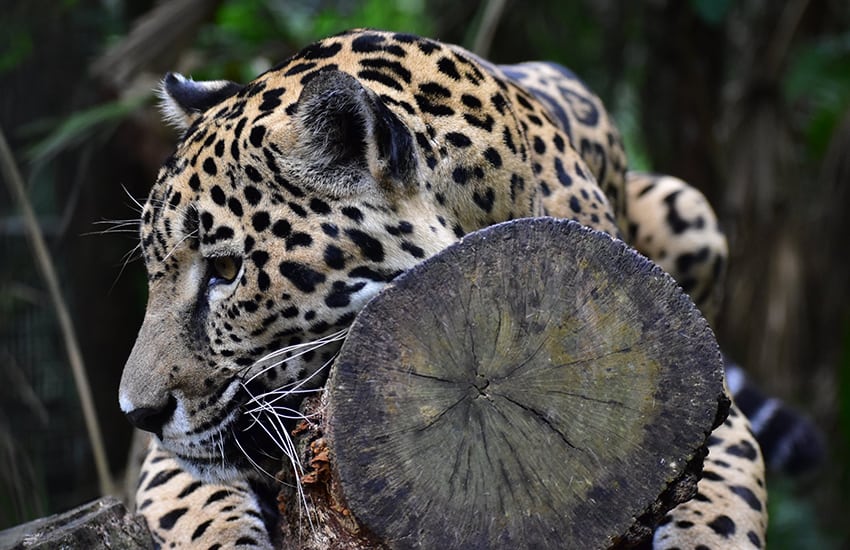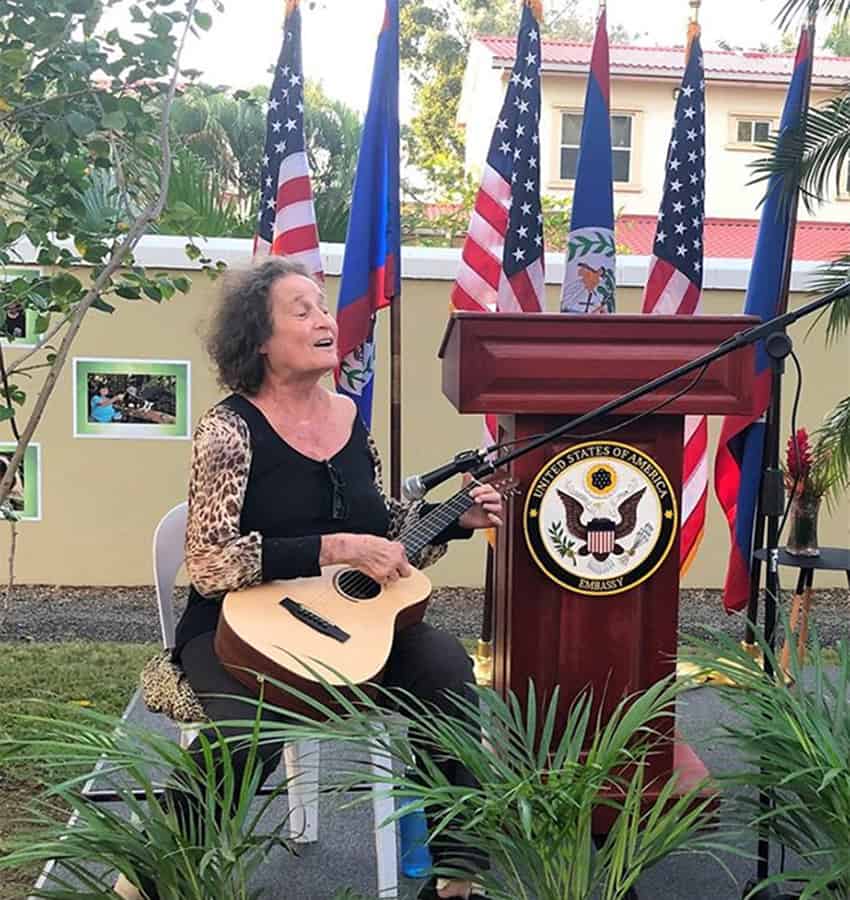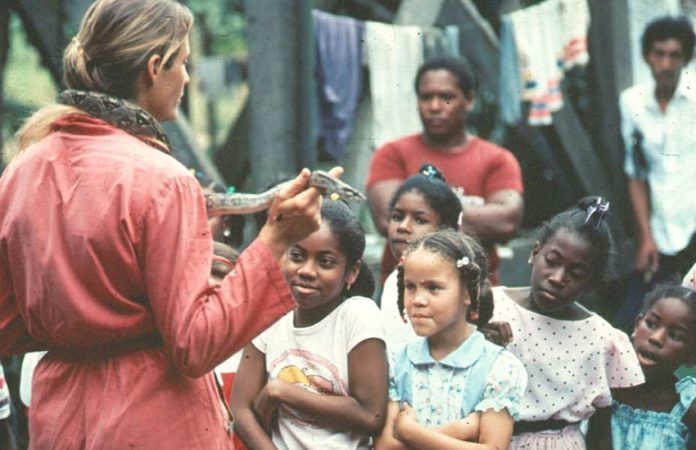The year is 1983. Surrounded by a small menagerie of injured rare wild animals, Sharon Matola has a decision to make.
The animals in her charge are unable to take care of themselves in the wild, and they are in the middle of the Mexico-Belize tropical forest with no real access to help or provisions.
After stints as a Mexican circus performer, jungle-trained member of the air force and a wildlife documentary filmmaker, Matola “was at a crossroads,” she was to tell the Washington Post later of that moment.
“I either had to shoot the animals or take care of them because they couldn’t take care of themselves in the wild.”
There and then she made the decision that was to shape the rest of her life until her sad and untimely death of a sudden heart attack on March 21 at the age of 66.

These days, Matola’s life has rightly become legend, but this was not something she could know as she was constructing rudimentary shelters for a veritable ark of animals on a shoestring budget in the early 1980s.
But, whatever the obstacles, onward Matola drove, displaying the signature never-say-die attitude that was to mark her next 40 years caring for animals and advocating aggressively for the protection of the Mexico–Belize jungle — the largest contiguous tropical forest in the Americas outside of the Amazon.
Back then, at the very beginning, it started with nothing more than a pitched sign announcing the arrival of the “Belize Zoo,” later evolving into the Belize Zoo and Tropical Education Center.
Initially charging a nominal entry fee and relying on local restaurants to send bored patrons her way, Belize Zoo struggled in its early years, raising chickens to supplement costs. Four decades after its inception, however, the sanctuary is one of Belize’s biggest tourist attractions: before the coronavirus pandemic wreaked havoc on tourism across the globe, the zoo hosted 75,000 visitors a year.
Crucially, half of these visitors were Belizean. The center is, in great part, credited with having awoken an environmental consciousness in the nation.
Markedly different than your average controversial zoo, at Belize Zoo, animals were rehabilitated and remained in their natural habitats rather than locked up in small pens. Today, there are now more than 45 species at the zoo, including the emblematic tapir, coatimundis, and white-lipped peccaries — all keystone species in Mexico’s southern jungle.

Her greatest work, however, was in her activism, which straddled Mexico and Belize and which awoke in her the greatest passions when defending the wildlife of the Maya Forest Corridor. She famously never suffered fools gladly and would happily take offending businessmen and politicians to task in very public settings.
One of her biggest fights in the early days was to spearhead a grueling five-year campaign against the construction of the Chalilo Dam on the Macal River.
A landmark movement, it was the first environmental case to appear before the Court of Appeal of Belize, where Matola argued that building the dam would destroy animal habitats in the heart of the Maya forest corridor running through part of Belize, northern Guatemala, and southern Mexico.
The ecosystem is scientifically recognized as one of the world’s most important ecological systems and is home to rare species such as the scarlet macaw, a bird for which Matola was internationally recognized as a leading researcher.
Much to Matola’s disappointment, the attempt to reverse the building permission was unsuccessful, and the dam was constructed in 2005. Moreover, and likely to her even greater chagrin, she was right about the negative impact of the dam on the Selva Maya, where the pressures of modernization are already being felt by declining wildlife levels.
However, while Matola’s attempt to combat the building of the dam may not have had the success she had hoped for, and won her more than a few enemies, her legacy nonetheless remains vitally important to the southern jungle and the people of Belize — a people she was to call her own when she took nationality in 1990.

Matola’s resourcefulness and ability to make do with the bare minimum extended into all facets of her life: the rough-hewn wooden hut in which she lived at the zoo contained only the essentials for survival, and she shared her bathing pool with a crocodile.
Likewise, at a conference in Miami in 1984, Matola — having no money for expenses but an abundance of determination — put an out of order sign on a toilet door and operated from there, walking around with a photo album to speak to anyone who would listen.
Though Matola’s legacy, and the impact of her loss, will be most felt in her home in Belize, it will also be felt across the natural spaces of southern Mexico and Central America. The Selva Maya ecological corridor, to which Matola dedicated years and years of her life protecting, is under a greater threat than ever before: increasing global temperatures, deforestation and the encroachment of huge development projects such as the Maya Train are threatening huge swathes of land that will be irrecoverable once lost.
Where nature is concerned, there are no borders. The great, unique body of life which is our home exists as a single, interconnected entity, and it needs its defenders now more than ever. Last month, with the untimely death of Sharon Matola, nature took a hit.
Shannon Collins is an environment correspondent at Ninth Wave Global, an environmental organization and think tank. She writes from Campeche.
